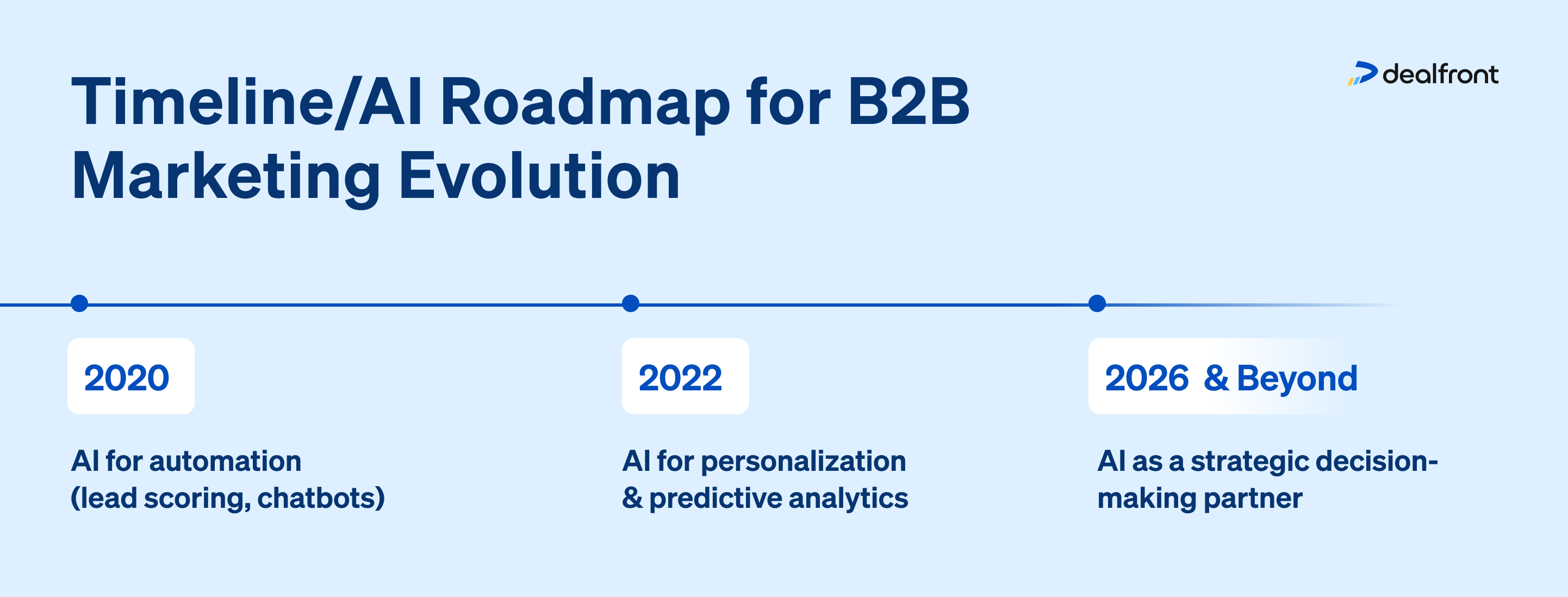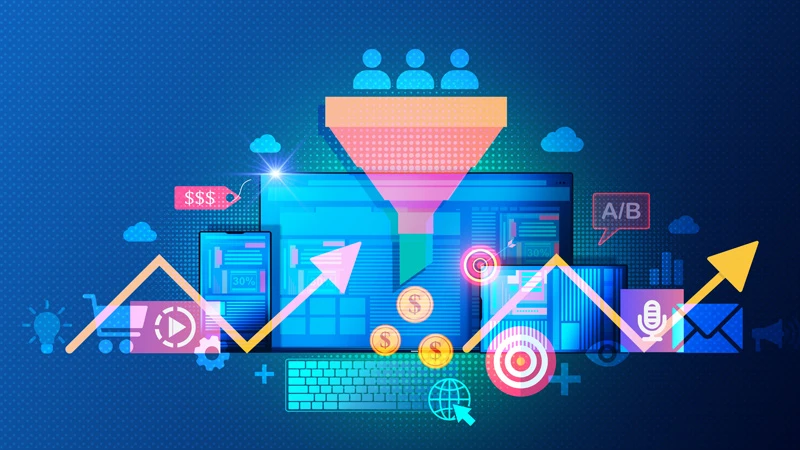Open Performance and Growth With AI Automation for B2B Firms
AI automation is changing the landscape for B2B business. It reduces and improves operations dependence on human treatment. This change allows organizations to make quicker, data-driven decisions. As organizations explore which processes to automate, they must likewise think about the right devices to implement. However, challenges remain in taking on AI modern technology. Minarik AI. The implications of these adjustments could shape the future of several companies in methods yet to be completely understood
Recognizing AI Automation in the B2B Context
As organizations increasingly look for effectiveness, recognizing AI automation in the B2B context becomes important. AI automation includes using advanced technologies to simplify procedures, decrease human intervention, and boost decision-making processes. In the B2B landscape, this can show up in various kinds, such as automating customer support interactions, managing supply chain logistics, or maximizing advertising and marketing projects. Companies can take advantage of AI to examine enormous datasets promptly, allowing them to recognize fads and insights that inform calculated selections. Additionally, AI systems can integrate flawlessly with existing technologies, supplying a cohesive system for taking care of service functions. This understanding prepares for companies to explore just how AI can transform their operations, boost performance, and ultimately foster sustainable development in a competitive market.
Key Benefits of Carrying Out AI Automation

Determining Processes Suitable for Automation

Selecting the Right AI Equipment for Your Business
When B2B business think about automating their procedures, picking the best AI devices becomes crucial for attaining preferred end results. Business ought to start by assessing their one-of-a-kind needs and purposes, making sure positioning with company goals (Minarik AI). Reviewing the scalability, adaptability, and combination capacities of prospective tools is important, as these factors figure out lasting effectiveness. Organizations ought to additionally consider user-friendliness and the degree of assistance offered by suppliers, as these components can impact successful execution. Additionally, examining consumer reviews and case research studies can give insights into exactly how certain AI services carry out in real-world situations. By thoroughly choosing AI tools that fit their functional requirements, B2B companies can enhance effectiveness and drive growth while reducing potential interruptions
Conquering Obstacles in AI Fostering
B2B firms frequently come across substantial obstacles in embracing AI modern technologies, specifically problems associated with data high quality and resistance to transform monitoring. Poor data top quality can prevent the performance of AI systems, while employee reluctance to accept new processes can stall execution initiatives - AI Automation For B2B. Addressing these challenges is necessary for effective AI integration and optimizing its potential benefits
Data High Quality Issues
Ensuring high data high quality is essential for the effective adoption of AI modern technologies in business-to-business environments. Inaccurate, insufficient, or out-of-date data can badly prevent AI initiatives, leading to incorrect understandings and poor decision-making. Firms commonly encounter obstacles such as information silos, disparities throughout different sources, and a lack of standardized data styles. To overcome these issues, companies need to buy information cleaning, combination, and governance procedures. Implementing robust data administration practices assures that the information fed right into AI systems is appropriate and dependable. Furthermore, fostering a society of data high quality recognition among workers can boost data precision in time. By addressing information quality concerns, B2B firms can launch the full possibility of AI automation, driving effectiveness and growth.
Change Administration Resistance

Determining the Effect of AI Automation
Determining the effect of AI automation in B2B business needs a clear understanding of vital performance indicators (KPIs) that line up with company purposes. Reliable data analysis techniques are necessary for analyzing the results, while durable ROI analysis techniques aid figure out the financial benefits of automation initiatives. With each other, these components offer an extensive structure for examining AI's payments to business success.
Key Performance Indicators
Trick performance indications (KPIs) act as essential tools for B2B firms to assess the effectiveness of AI automation efforts. By establishing clear metrics, companies can gauge renovations in functional efficiency, price reduction, and earnings growth directly attributable to automation. Typical KPIs include cycle time decrease, mistake rates, consumer contentment scores, and worker performance levels. These indicators you could try here give understandings right into how AI systems are maximizing procedures and enhancing total efficiency. In addition, tracking KPIs allows business to recognize areas for further improvement and to align AI automation efforts with critical company purposes. Eventually, a well-defined structure of KPIs guarantees that B2B business can quantitatively review the effect of AI automation on their operations and drive continuous development.
Data Evaluation Techniques
Effective information analysis techniques play an important duty in reviewing the impact of AI automation within B2B companies. By utilizing statistical approaches, companies can recognize patterns and patterns in operational data, permitting them to analyze the efficiency gets attained with automation. Strategies such as regression evaluation and time collection forecasting supply understandings into how AI-driven processes affect performance and decision-making. In addition, information visualization tools can effectively interact findings to stakeholders, assisting in informed calculated decisions. Artificial intelligence formulas can additionally improve evaluation by forecasting future end results based upon historic data, offering actionable understandings. Eventually, these techniques allow B2B firms to determine success and optimize their AI automation efforts, making certain positioning with company objectives and enhancing total performance.
ROI Assessment Methods
Evaluating the return on investment (ROI) of AI automation is necessary for B2B business looking for to understand the economic effects of their technical efforts. Business can use different ROI analysis approaches to determine the efficiency of AI executions - Growth Systems For B2B. One efficient technique includes computing price savings by comparing functional expenditures prior to and after automation (Growth Systems For B2B). Additionally, determining efficiency improvements with crucial efficiency indications (KPIs) aids quantify the benefits of AI. Customer contentment metrics can additionally give understandings right into the effect of automation on solution quality. To guarantee a comprehensive analysis, firms need to take into consideration both straight economic returns and intangible advantages, such as enhanced decision-making abilities and affordable benefit. This diverse assessment allows B2B firms to make informed choices relating to future investments in AI innovation
Future Patterns in AI Automation for B2B Companies
What innovations lie in advance for AI automation in B2B firms? Emerging fads suggest a considerable change towards boosted data analytics abilities, making it possible for services to make even more enlightened decisions. Anticipating analytics will become increasingly necessary, allowing business to expect market adjustments and client needs. Furthermore, the assimilation of AI with Internet of Points (IoT) technology is expected to simplify operations by offering real-time insights and automation of procedures. Companies will certainly likewise concentrate on enhancing consumer experiences through customized advertising and marketing driven by AI formulas. Advancements in natural language processing will promote far better interaction between organizations and clients. As these trends evolve, B2B business must adapt to utilize AI automation efficiently, ensuring sustained growth and affordable benefit.
Regularly Asked Inquiries
What Industries Advantage one of the most From AI Automation in B2B?
Manufacturing, finance, healthcare, and logistics industries profit one of the most from AI automation in B2B. These industries leverage AI to maximize procedures, improve decision-making, and improve general operational effectiveness, driving significant growth and development.
Just How Does AI Automation Influence Employee Duties and Responsibilities?
AI automation improves staff member functions and responsibilities by enhancing recurring jobs, enabling workers to concentrate on critical efforts. This change cultivates ability growth, boosts productivity, and motivates partnership, inevitably driving organizational development and innovation.
What Are Typical False Impressions Concerning AI Automation in B2B?
Common misconceptions concerning AI automation in B2B include fears of work loss, ideas that AI can totally change human judgment, and undervaluing the relevance of partnership between AI systems and staff members for perfect outcomes.
Exactly How Can Companies Ensure Data Personal Privacy With AI Automation?
Businesses can guarantee data personal privacy with AI automation by applying robust encryption procedures, sticking to regulatory compliance, conducting normal audits, and training workers on data handling techniques to minimize dangers and secure delicate info.
What Are the Costs Related To Carrying Out AI Automation?
The costs associated with executing AI automation consist of software program acquisition, framework upgrades, training employees, ongoing maintenance, and potential downtime during assimilation. In addition, companies might sustain costs associated with data safety and compliance steps.
Gauging the influence of AI automation in B2B firms calls for a clear understanding of vital performance signs (KPIs) that line up with organization goals. Key performance signs (KPIs) serve as important tools for B2B business to assess the efficiency of AI automation initiatives. Reliable information analysis methods play a necessary role in assessing the effect of AI automation within B2B companies. Evaluating the return on financial investment (ROI) of AI automation is vital for B2B business seeking to understand the economic effects of their technical efforts. What advancements lie in advance for AI automation in B2B firms?